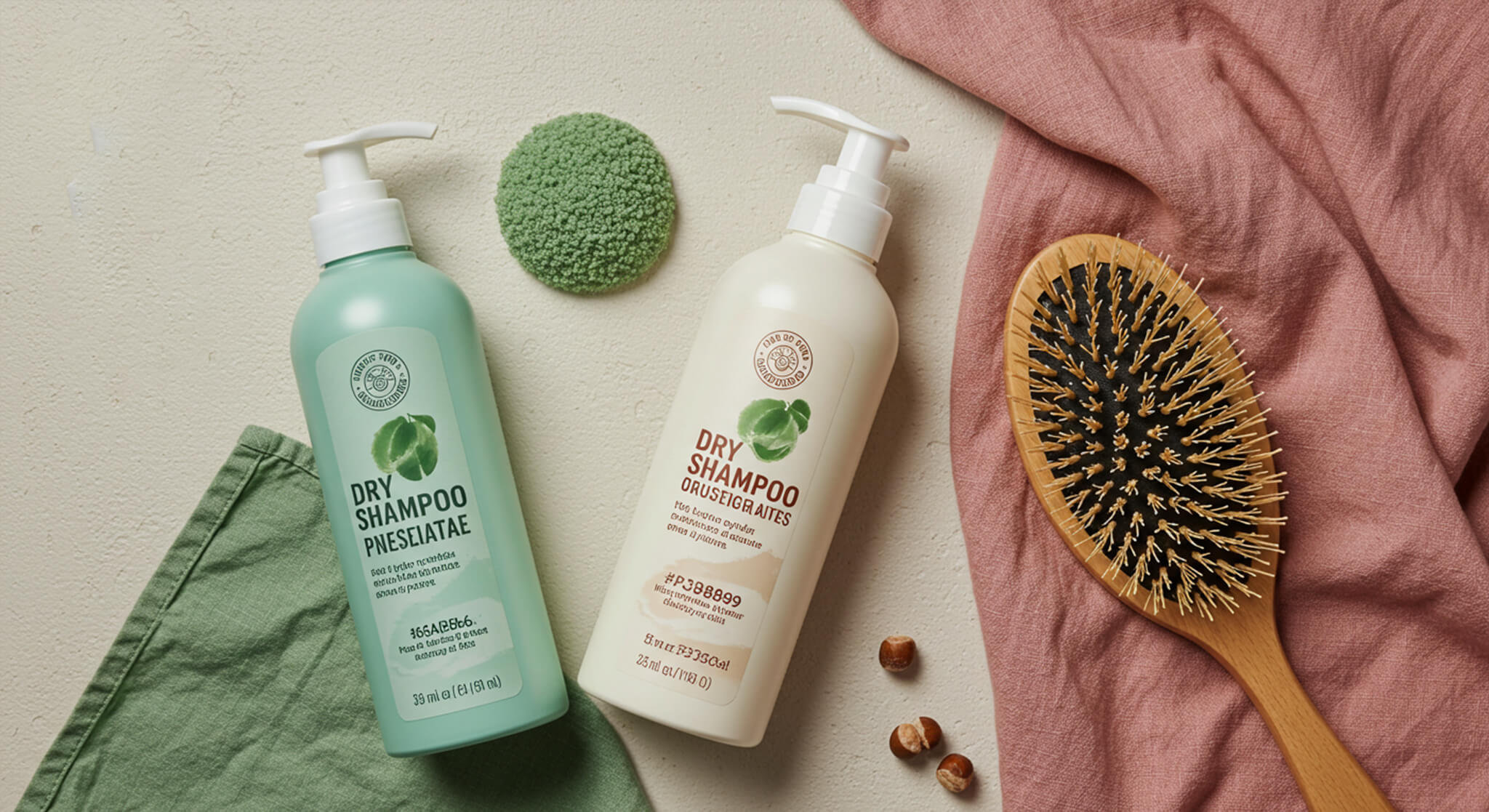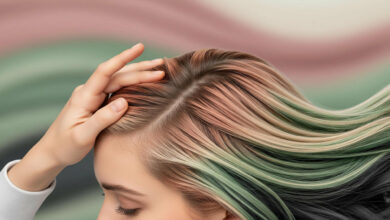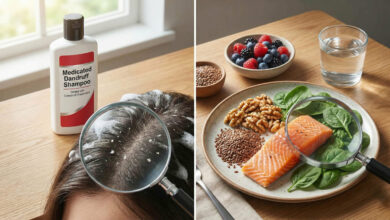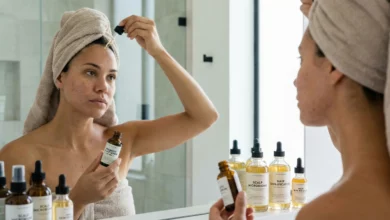Dry Shampoo Itchy Scalp: The Real Cause & How to Fix It
Table of contents
The Hair Hero with a Potentially Itchy Dark Side
It’s the undisputed hero of modern hair care, the miracle spray in a can. Dry shampoo buys us a precious extra day (or three) between washes, revives limp, second-day hair, and saves us countless hours of styling time. We love our dry shampoo.
But what if this beloved hair hero is the secret villain behind your constantly dry, flaky, and unbearably itchy scalp?
The answer for millions of people is a resounding yes. Your favorite dry shampoo could absolutely be the primary cause of your scalp issues. But the problem isn’t necessarily that all dry shampoos are “bad”—it’s that most of us are using them incorrectly.
We’re diving into the science of what dry shampoo actually does to your scalp, the common mistakes that lead to irritation, and the ‘smart use’ rules that will let you enjoy all the benefits without the damaging side effects.
The Science: What’s Really Happening on Your Scalp
To use it correctly, you must first understand what dry shampoo is and isn’t.
It’s an Absorbent, Not a Cleanser
This is the most crucial mindset shift: dry shampoo does not clean your hair. It does not remove anything. It is a powder- or starch-based product that is designed to absorb oil and sebum at the root. It simply adds a layer of product to soak up the grease, masking the problem rather than solving it.
The “Scalp Suffocation” Effect
When you spray dry shampoo day after day without washing, you’re creating a thick, plaster-like buildup on your scalp. This isn’t just powder; it’s a mixture of the product’s starch, the oil it has absorbed, your own sweat, and dead skin cells. This heavy paste can effectively suffocate the skin on your scalp.
The Consequences for Your Scalp Health
This constant buildup leads to a cascade of problems:
- Clogged Follicles: The paste can physically block your hair follicles. This can lead to inflammation and a condition known as scalp folliculitis, where the follicles become infected and inflamed, often appearing as small, itchy pimples. In chronic cases, this can even impede healthy hair growth.
- Microbiome Disruption: This buildup disrupts the delicate balance of your scalp’s natural microbiome (the ecosystem of healthy bacteria and yeast). This can allow for an overgrowth of the wrong kinds of microbes, which is a primary cause of intense itching and flaking.
- Irritation & Dehydration: The alcohols and starches in many formulas can be very drying on the skin. This can strip the natural moisture from your scalp’s skin barrier, leading to a tight, irritated, and perpetually itchy feeling.
The Smart Dry Shampoo Rulebook: How to Use It Without Irritation
You don’t have to throw away your favorite product. You just have to follow a few simple rules.
Rule #1: Apply It Before You Need It
The Pro-Tip: The most effective time to apply dry shampoo is to clean, dry hair on day one, right after you’ve styled it. A light mist at the roots will absorb oil as it’s produced, preventing your hair from ever looking greasy. You’ll use far less product and get much better, more natural-looking results.
Rule #2: Spray from a Distance
Hold the can at least 6-8 inches (15-20 cm) from your head. This allows for a fine, even mist to settle on the roots. Spraying too close creates a concentrated, chalky patch of product that is a direct cause of buildup and irritation.
Rule #3: The “Two-Day Max” Rule
Think of dry shampoo as a pass for a maximum of two consecutive days. After two days of use, your scalp needs a true, water-based wash with a liquid shampoo to properly remove the accumulated product, oil, and debris.
Rule #4: A Weekly “Scalp Detox” is Non-Negotiable
If you are a regular dry shampoo user, you must incorporate a weekly “deep cleanse” into your routine. This is the essential ‘reset’ button that keeps your scalp healthy. Use a clarifying shampoo or a gentle scalp scrub once a week to thoroughly remove all traces of buildup and keep your follicles clean and clear.
The Verdict: A Great Tool, Not a Replacement for Water
So, is your dry shampoo the cause of your itchy scalp? If you’re using it to mask an oily scalp for multiple days in a row without a proper cleansing routine, the answer is almost certainly yes.
Dry shampoo is a fantastic tool to extend your style and manage oil, but it was never meant to be a replacement for actually washing your hair. By using it strategically and committing to regular, thorough scalp cleansing, you can enjoy all the convenience it offers without sacrificing the health and comfort of your scalp.
Related article:




